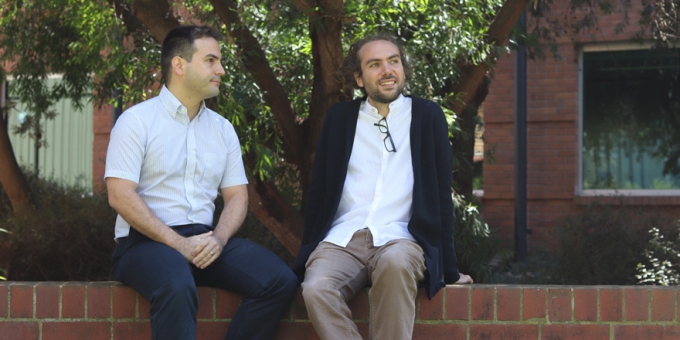Two researchers, Juan Felipe Torres and Charles-Alexis Asselineau, have been awarded grants through the ANU College of Engineering and Computer Science’s Industry Engagement Advice and InvestmentScheme (IEAIS).
The ongoing scheme is designed to provide seed capital to initiate engagement and collaboration between CECS researchers and industry. The scheme actively encourages innovative methods of engagement rather than restricting to well-known avenues.
Both Felipe and Charles-Alexis met their respective industry partners in Casablanca, Morocco, at SolarPACES 2018, a conference that focuses on applied research in solar thermal technology.
Before coming to ANU Felipe worked for Toshiba in Japan. He said his interests lie at the intersection between academia and industry, “I want my work to have a direct impact on society by solving real world tangible problems, in addition to generating knowledge and educating the next generation of engineers.”
Felipe will be using the funding to take a trip to Japan in April 2019 to establish relationships with the tech industry there. He aims to find common research interests between CECS and Japanese partners, Toshiba and IHI, focusing on high-temperature hydrogen production and thermal energy storage.
Felipe’s advice for academics interested in industry collaboration “would be to attend applied research conferences where industry is expected to participate, not just fundamental research.”
Charles-Alexis is French, and came to Canberra six years ago to complete his PhD, before continuing to work at ANU as a research fellow. His work focuses on developing “new ways to capture sunlight, store it and convert it into useful energy”.
He aims on establishing a relationship with DECHEMA-Forschungsinstitut (DIF), a German not for profit research institute. With the funding from the IEAIS, Charles-Alexis said he will be able to “extend the original scope of this collaboration to new materials, pay for Scanning Electron Microscopy at ANU CAM and visit my collaborators in Frankfurt this year to discuss further collaboration activities”.
Charles-Alexis said the IEAIS allowed him to be agile and proactive, “the fact that the funds are given in advance of the work being won is a fantastic opportunity to move fast and attract interest of industrial actors who are generally reluctant to invest in collaborations of no commitment is made on the other side.”
The scheme is ongoing, and academics can apply at any time and receive up to $10,000 in funding. If you are interested in applying for the IEAIS, find more information here.

